Notebook
-
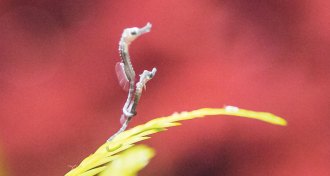 Animals
AnimalsToddler seahorses are bumbling and adorable
Rice-grain-sized youngsters can’t yet get a grasp with their tails.
By Susan Milius -
 Planetary Science
Planetary ScienceFirst craters on Mars spotted 50 years ago
Fifty years ago, Mariner 4 revealed that the Red Planet was peppered with craters. Now we know pockmarks are common on many other planets and moons, too.
-
 Environment
EnvironmentFracking doesn’t always go to great depths
Fracking at shallow depths is unexpectedly common in the United States and raises new concern for drinking water contamination.
By Beth Mole -
 Health & Medicine
Health & MedicineBystanders deliver on CPR
People suffering from cardiac arrest are more likely to survive without brain damage if a bystander performs CPR, new studies suggest.
By Nathan Seppa -
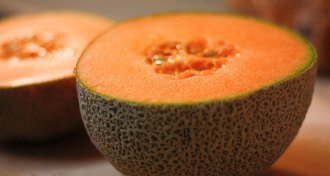 Genetics
GeneticsMelonomics: Sounds like a cancer, smells like a melon
The project that published the first melon genome dubbed itself melonomics.
-
 Climate
ClimateWildfire seasons have gotten almost 20 percent longer
The average length of wildfire seasons has increased 18.7 percent since 1979, new research shows.
-
 Genetics
GeneticsEnormous quantities may soon be called ‘genomical’
Genetic data may soon reach beyond astronomical proportions.
-
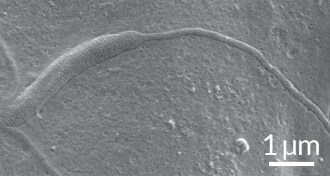 Paleontology
Paleontology50-million-year-old fossil sperm discovered
Ancient worm sperm preserved in 50-million-year-old cocoons from Antarctica set age record.
By Meghan Rosen -
 Astronomy
AstronomySource of blazars’ super brightness comes into focus
Astronomers take a close look at a blazar, a galaxy whose central black hole emits gamma rays and other high-energy material toward Earth.
By Andrew Grant -
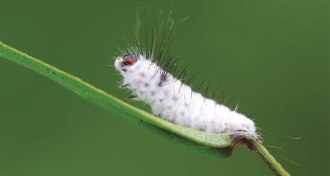 Life
LifeA downy killer wages chemical warfare
The common fungus Beauveria bassiana makes white downy corpses of its victims.
By Beth Mole -
 Tech
TechFlame-finding pistols set off decades of blazing technology
Researchers unveiled a gun-shaped flame detector in 1965
By Beth Mole -
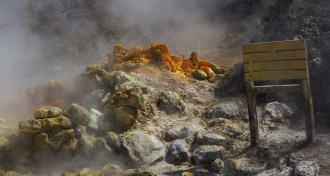 Earth
EarthNatural concrete keeps lid on Italian volcano
Naturally occurring, concretelike rock allows the ground around Italy’s Campi Flegrei caldera to bulge without bursting.